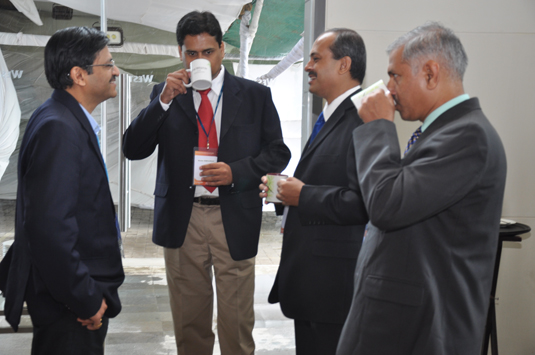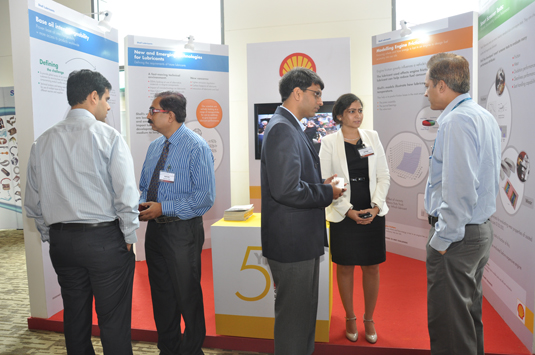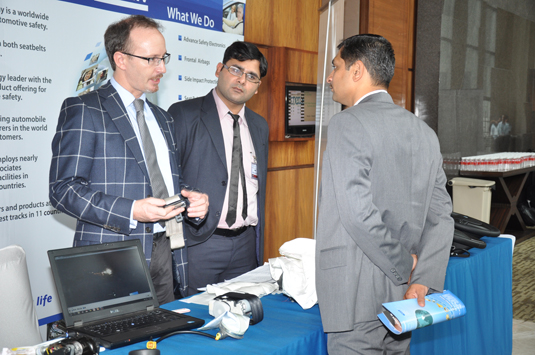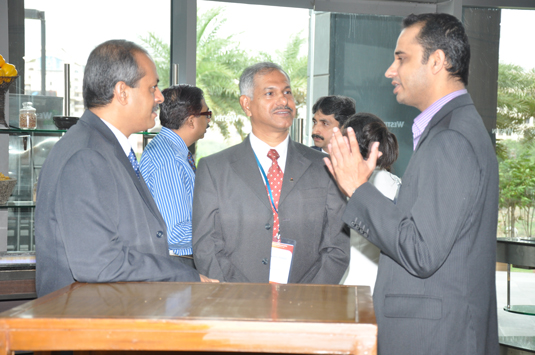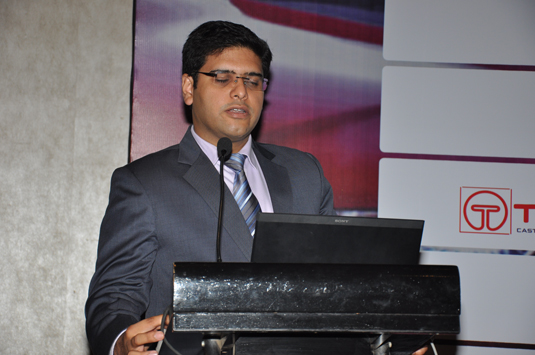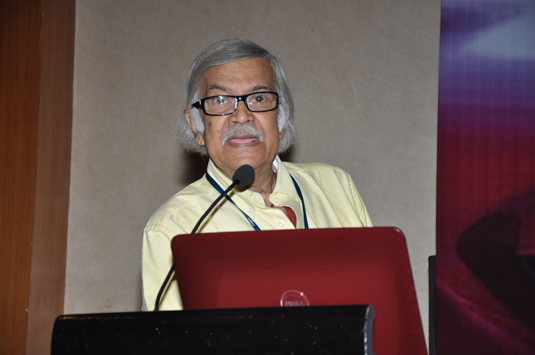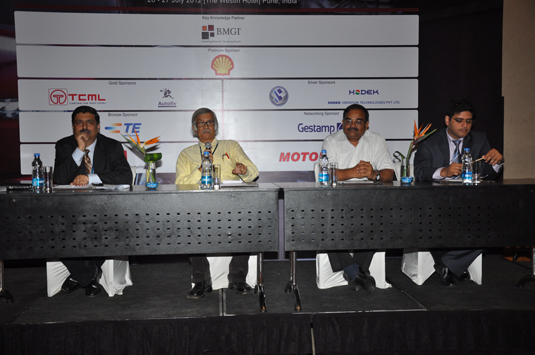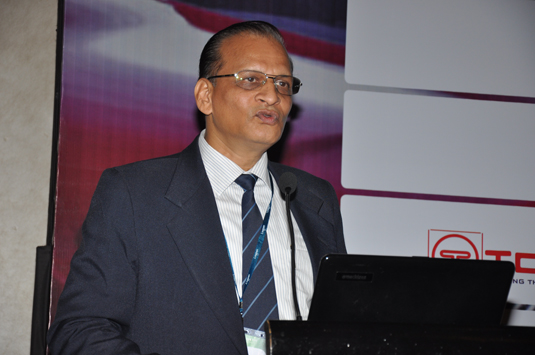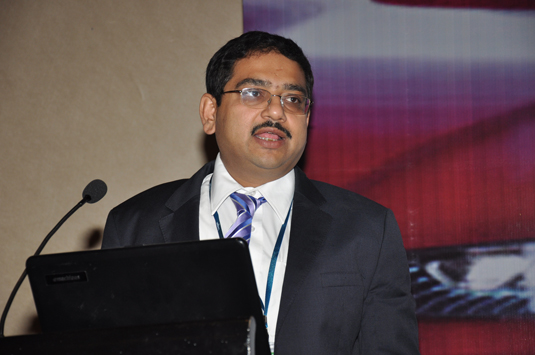2nd India Automotive Summit 2012
July 26th & 27th. 2012, Pune, India
The automotive industry in India is one of the largest and fastest growing in the world. Passenger car sales have grown 137 percent in the past six years. With the economic downturn in the west, global car makers are capitalizing on the world’s 6th largest car market and enhancing manufacturing operations to benefit from the country's competitive engineering skills and cost-effective labour.The 2nd India Automotive Summit took place on July 26th – 27th, 2012 in Pune and brought together major players in the industry to discuss critical topics including the impact of rising fuel prices on the automotive industry, customization for the Indian market to fit the local demands, as well as the opportunity of global sourcing and India's leading role.
The Chairman for the event Mr Naresh Raisinghani, CEO and Executive Director, BMGI, welcomed the delegates on Day 1 of the event. He made a brief presentation outlining the evolution of the Indian Passenger Vehicle (PV) industry from 1950s to the current decade. He signed off by naming a few key challenges facing the Automotive Industry in India currently, including rising fuel costs, technological challenges like green fuel and the challenge to develop low cost small cars, while striving to remain globally competitive
Mr. Raisinghani had also touched upon the importance of a conduisive locale for an automobile manufacturer. The next speaker, Mr KT Vyas, Officer on Special Duty, Industry Extension Bureau (iNDEXTb), Government of Gujarat answered this question. In his presentation, he shared that India is a preferred investment destination today owing to the fact that more than 60% population is below forty years of age providing great potential for experienced as well as a huge English speaking manpower. Mr. Vyas mentioned Gujarat as a strategic location for trade owing to several factors such as industrial peace, minimal labour unrest of 0.5%, connectivity of all major cities to ports and presence of large number of SEZs. He gave the example of Tata Motors who shifted from Bengal to Gujarat and were ready for production in a span of 15 months that fuelled the rapidly growing interest to set up automobile facilities in the state.
Mr M R Saraf, Deputy Director, Structural Dynamics Laboratory, Automotive Research Association of India (ARAI) gave a detailed analysis of a survey done by ARAI on the driving habits across India to understand customer requirements. Some of the observations shared included different vehicle requirements in different regions and driving patterns changing every 5 years. In response to a delegate query related to ARAI’s influence on the government to improve the roads, Mr. Saraf stated that the primary goal was to design vehicles as per the existing infrastructure and driving habits and not the other way round.
Mr Akhil Jha, Vice President, Technical, Lubricant business, Shell India shared insights on the latest technological developments in the field of lubrications in his presentation. The major technological challenges facing OEMs today are fuel economy, emission reduction and making engines tolerant for alternate fuels. Among the fluids, he added, the trend today is to move towards low viscosity oils but cautioned that this leads to compromising on lubrication. Post lunch, Mr Nirmalya Banerjee, Business Head, BMGI, mapped the Pillars for Future Growth in Indian Automotive Industry. Steady growth of demand, sharp growth in exports, growing focus on supply chain, direction towards green technology to name a few are key trends showcasing the current status of Indian Automotive Industry, he stated. He stressed that the key paradigms of growth will be in enhancing internal capability and leveraging external opportunity. Further, he talked about leveraging external opportunity through the strategies of rapid innovation and quick and efficient capacity addition.
Another standout speaker on Day 1 was Mr Jayanta Deb, Vice President (Engineering & Design), Fiat India Automobiles Ltd, who answered a pertinent question about the impact of the rising fuel prices on the automotive industry. Discussing the way forward to counter the recent hike in fuel prices, he mentioned about the high court ruling in Gujarat where cars are required to convert to CNG/LPG and the need for new fuel efficiency ratings introduced in the country. Voicing his opinions on the upcoming technology trends in India, Mr. Deb mentioned that Start/Stop electrical technology in India will show growth in the short term and there is tremendous scope for hybrid vehicles in the long term. Anticipating evolution of alternative fuels, hydrogen cells will dominate the period from 2030-2050, he predicted.
Day 1 concluded with a panel discussion on Designing and Maintaining Transformational Supply Chain that included Mr Jayanta Deb, Mr A T Jain, Head, Quality Assurance, Tata Motors Ltd. and Mr Sameer Jindal from General Motors India. Mr Jain drew attention towards the fact that vendors are an integral part of OEMs and should be involved from the beginning of the procurement planning process, which can resolve most of the sourcing problems. In response to a delegate query on the future of auto industry in the coming 5 years, Mr. Deb drew a comparison with the China market where demand was for bigger cars whereas India hosted a huge market for both sizes thus substantiating the point made by the CEO of BMGI earlier.
Day 2 began with a speech by Mr Ashwin Jacob, Director, Automotive Head, Management Consulting, KPMG Advisory Services Pvt. Ltd. who gave on overview on the opportunities and challenges faced by India’s Automotive Sector. He gave the time line for industry landscape and evolution right from heavy regulation to Glocalization describing the latter as next stage of maturity. He predicted the Indian market to be the 3rd or 4th largest by 2018-2020 and drew attention towards the evolution by citing trends such as growing maturity of Indian consumer, opening up of Tier II and Tier III markets especially rural markets for small and compact vehicles as well as 2-wheelers, passengers looking for entertainment in vehicles, focus on total cost of ownership to name a few
The next speaker, Mr Debashis Mitra, Director, Sales & Marketing Passenger Cars, Mercedes Benz, India gave an overview on Customization for the Indian Market to fit the Local Demands. His presentation primarily revolved around 3 angles namely emerging markets having their own complexities and variances, Indian consumer behaviour different from their western counterparts and rapidly changing retail environment. He predicted that by 2020, no automobile player can afford to not be in India. The biggest challenges facing us today is ability to adapt quickly to global technologies (e.g. left hand drive and Euro V norms as against current right hand drive and Euro IV norms), having cars suitable for different environmental conditions and also about Indian consumers being bothered more about the rear part rather than the front portion of the car, and the dependence on heavy duty horns on Indian roads. He further shared how his organization is redefining the Indian auto sector where the marketing approach focuses on penetration by addressing complex media, taking special initiatives for customer connect and not replicating global practices keeping in mind the unique tastes of the Indian customer
Another eminent speaker on Day 2, Mr Akshay Sangwan, Corporate Head, Strategy, Sonalika Group presented his views on strategies that go behind Global Sourcing for Cost Control. Although describing the risks of global sourcing in great detail, he went on to paint an optimistic scenario for the same by mentioning rewards that include lower component cost, better quality, innovation from emerging markets to name a few.
Discussing the trend of Electrical vehicles further in detail, Mr Tara S. Ganguli, CEO, Tara International presented on Electrical Vehicles for Land, Sea and Air. He predicted that electric vehicles will constitute 25-30% of automobile population within 10 years. The reason behind growth of electric vehicles market is oil fluctuations and also the fact that they pose negligible problems compared to conventional IC engines, he stated.
The summit closed with a panel discussion on Shaping the Future of the Automotive Industry in India moderated by the CEO and Executive Director of BMGI, Mr Raisinghani with panellists Mr Sangwan, Mr Ganguli and Mr Dinesh Kulkarni, Head Projects, M/HCV, Mahindra and Mahindra. The discussion was centred on topics such as emergence of electric vehicles, design shift towards composite materials leading to potential disruptions in the conventional supply chain, OEM’s strategy to continue their focus on expansion and concluded with the group concurring on cost reduction and innovation being two sides of the same coin.
Noppen would like to thank our sponsors, Shell India, Hodek Vibration Technologies Pvt Ltd, Tulsi Castings and Machining Ltd, TE Connectivity, Spring India, Autoliv India Pvt. Ltd and Gestamp Automotive. Noppen would also like to thank the eminent speakers and delegates for participating in the event and contributing towards making this event a success


Search an event
By Date
Industry
- Architecture & Real Estate ( 103 )
- Automotive & Manufacturing ( 68 )
- Corporate Management ( 15 )
- Culture, Tourism & Entertainment ( 46 )
- Education ( 12 )
- Energy & Natural Resources ( 83 )
- Finance ( 32 )
- Food & Agriculture ( 13 )
- Healthcare & Life Science ( 76 )
- Information Technology ( 58 )
- Infrastructure & City Expansion ( 119 )
- Retail & Consuming Goods ( 38 )
- Sports & Hospitality ( 54 )
- Transportation & Logistics ( 104 )





